Feasibility of Public-Private Partnerships (PPP) waste treatment facilities in Israel
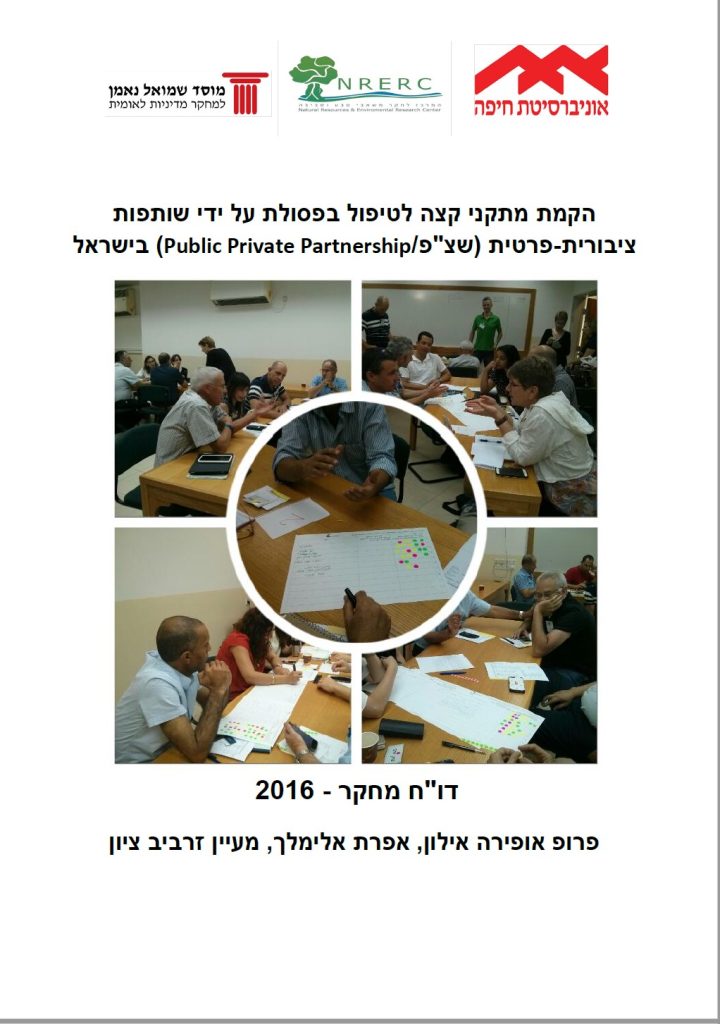
This study was conducted as part of research funded by Mifal Hapais (the Israeli Lottery) and the Center for Local Authorities. The lack of compatibility between the waste management policy in Israel and the reality in the field raises the following question: What are the factors that hinder the establishment of end-treatment plants in Israel? […]
National Environmental Priorities, Position Paper X: Innovative agricultural technology industry in Israel, 2016
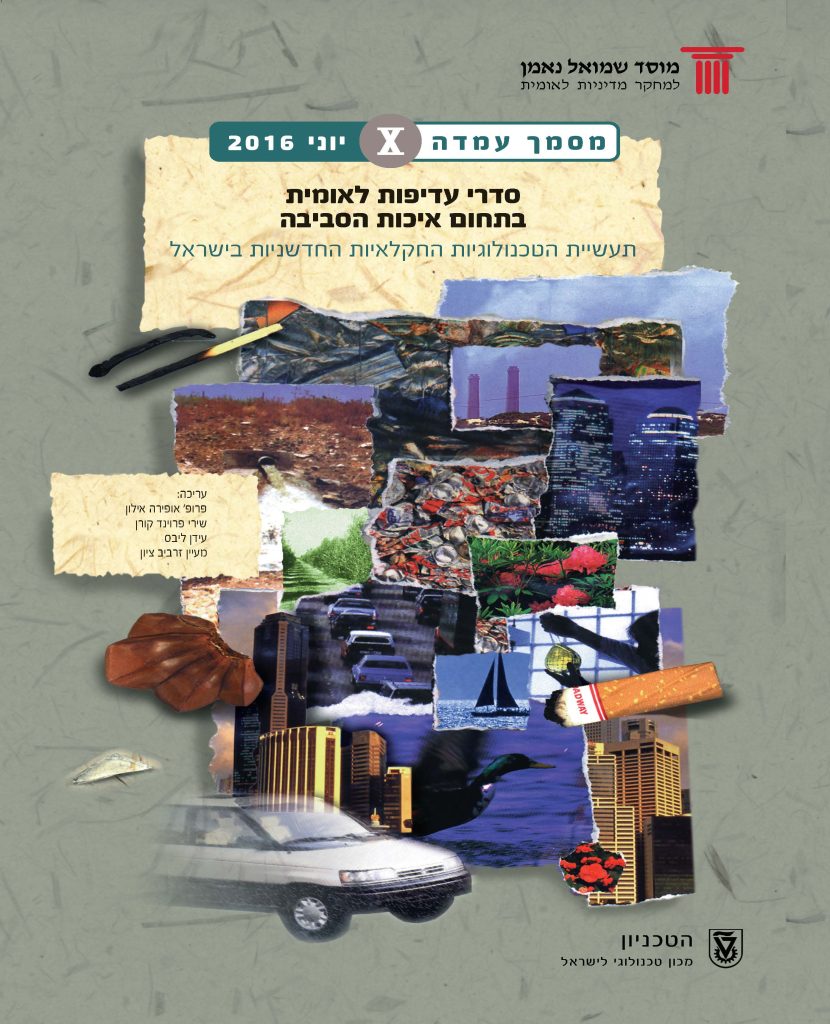
This National Priorities document, the tenth to be published, summarizes updated knowledge and brings the subject of Agricultural Technologies (Agrotech) to the public agenda. The world is currently facing complex environmental challenges, partly as a result of growing population along with the outcomes of climate change and include water and air pollution challenges, soil degradation […]
Global Estimates Of Methane Emissions from Off-Shore Drilling Plants and Their Importance
The study reviews, for the Ministry of Environmental Protection, the world’s regulations and methodologies for estimating methane emissions in the natural gas sector. In addition, the study presents an opinion that addresses the relevance of these methodologies and their application to estimating methane emissions from natural gas facilities in Israel. Methane (CH4) is emitted into […]
Greenhouse Gas Emissions Reporting and Registration System in Israel: Summary of Reports for 2014
54 companies and organizations joined the greenhouse gas emissions in 2014 to the Ministry of Environmental Protection. Each of the reporting companies, enclosed a signed statement regarding the reliability of the data, as required by the Reporting and Registration System, which was developed in cooperation with the Ministry of Environmental Protection, the Energy and Environment […]
Sustainable aquaculture in the Mediterranean Sea
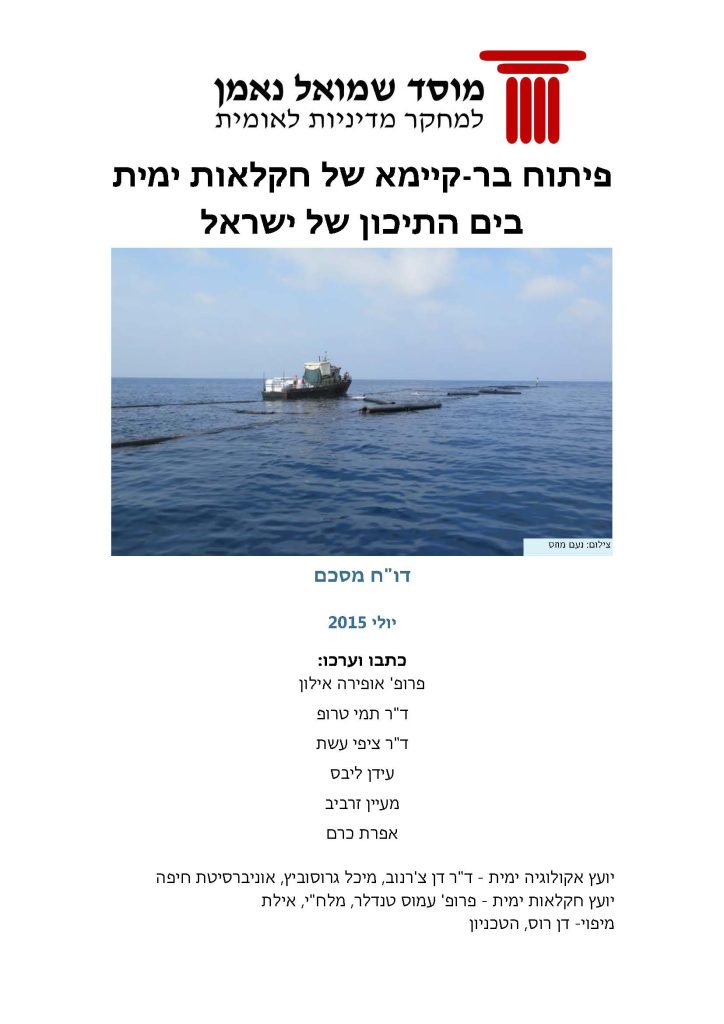
According to the Food and Agriculture Organization (FAO) publication, most of the world fishing areas have been fully utilized or over fished, while demand for seafood (fish, mollusks, crabs and algae) is increasing, due to their nutritional benefits. In order to deal with the global food crisis, and the gap between the quantity supplied by […]
Evaluating Benefits of Transportation Tunnels – The Carmel Tunnels as a Case Study
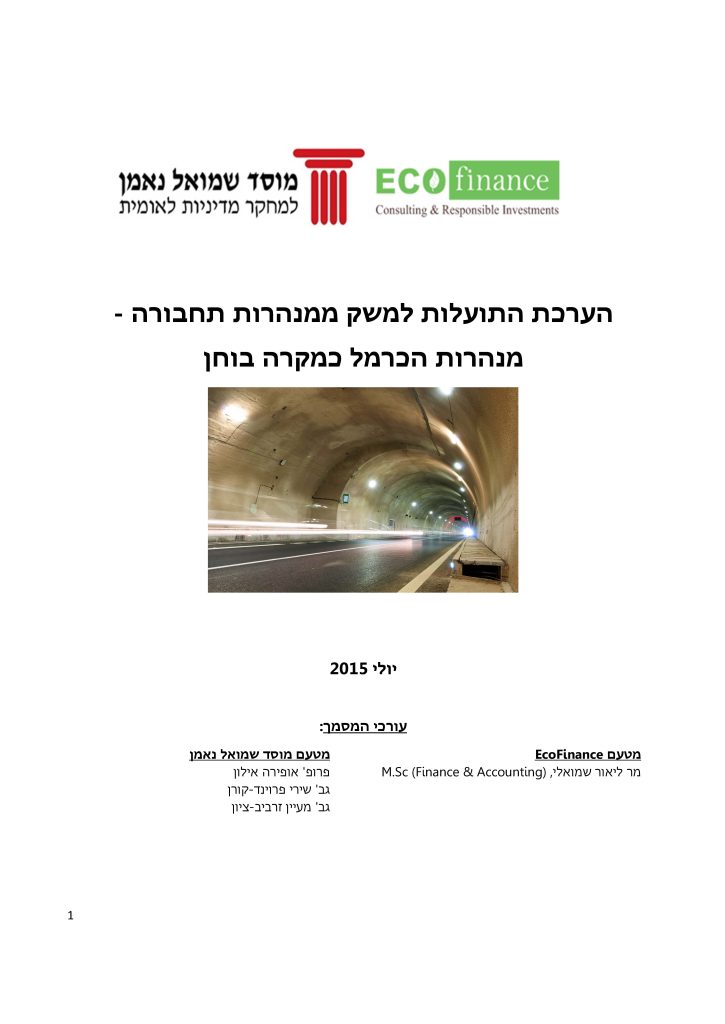
The study analyses direct benefits (time and fuel saving) and indirect benefits (noise and air pollution reduction) due to driving in the Carmel tunnels. Results show positive benefits, yet, these benefits depend on time of travelling in the tunnels.
Assessment of the economic damage of the fuel leak at the junction Be’er Ora 12.03.14 – Economic opinion
The research was conducted for Adam Teva V’Din in cooperation with ADALYA consulting. The study includes a complete and true damage evaluation caused by the leak from the event in Be’er Ora (Evrona) in December 2014. The study included the calculation of the socio-economic cost which reflects the public value of the damage to nature […]
Agriculture Surplus and their efficient use
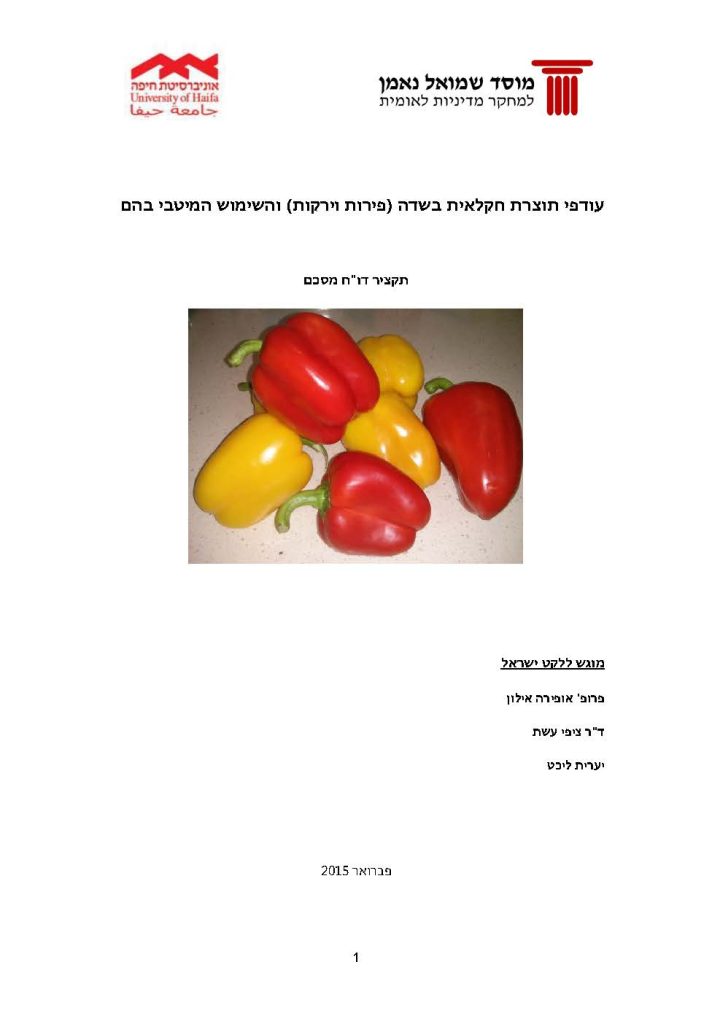
The study defines and give preliminary assessments as to the amount of fruits and vegetables left in agriculture fields and how can national policy reduce these amounts, and if formed- how can they be utilized.
Residential pneumatic refuse collection systems – techno-economic analysis for municipalities

Automatics waste collection systems are an alternative to conventional waste collection (via trucks). These are high-capital systems, with a significant economies of scale advantages. Additionally, such systems dramatically reduce – and even eliminate – operational costs associated with conventional collection, therefore a viable solution – especially in large neighborhoods with high-level buildings. As part of […]
Greenhouse Gas Emissions Reporting and Registration System in Israel: Summary of Reports for 2013
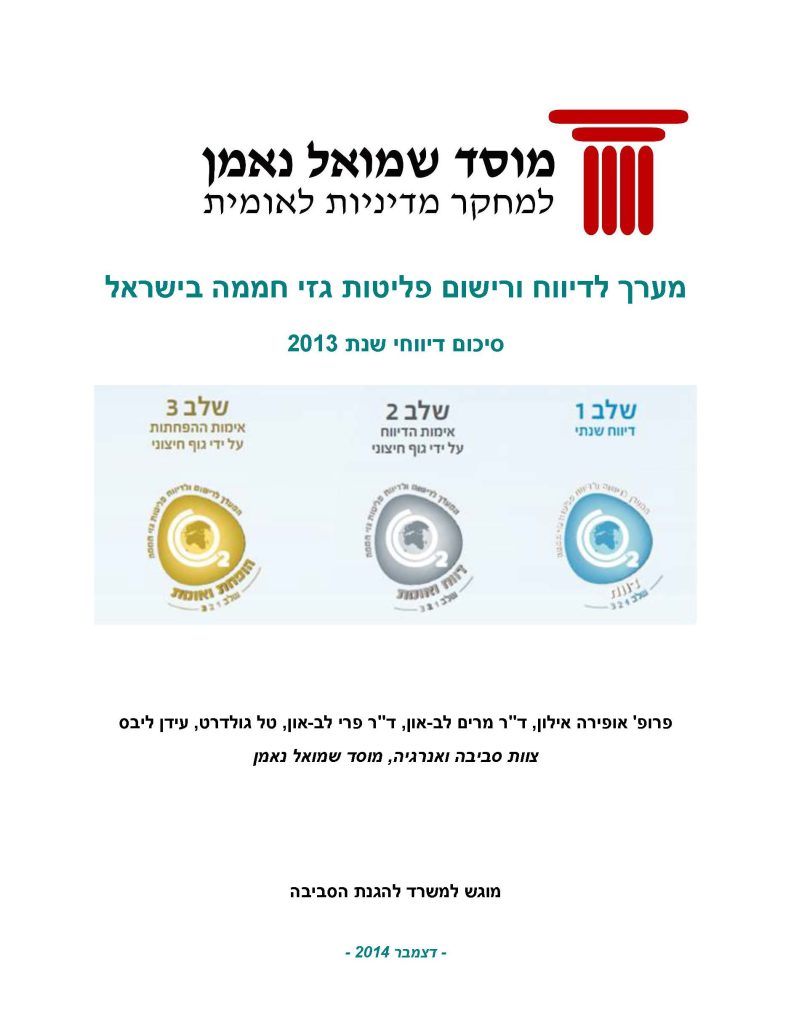
The issue of global climate changes is the subject of worldwide attention, due to its environmental, economic and social implications over both the developed and developing world. The government of Israel recognizes the importance of reducing greenhouse gas emissions (in spite of no formal international commitment to date, as well as the halt in the […]
